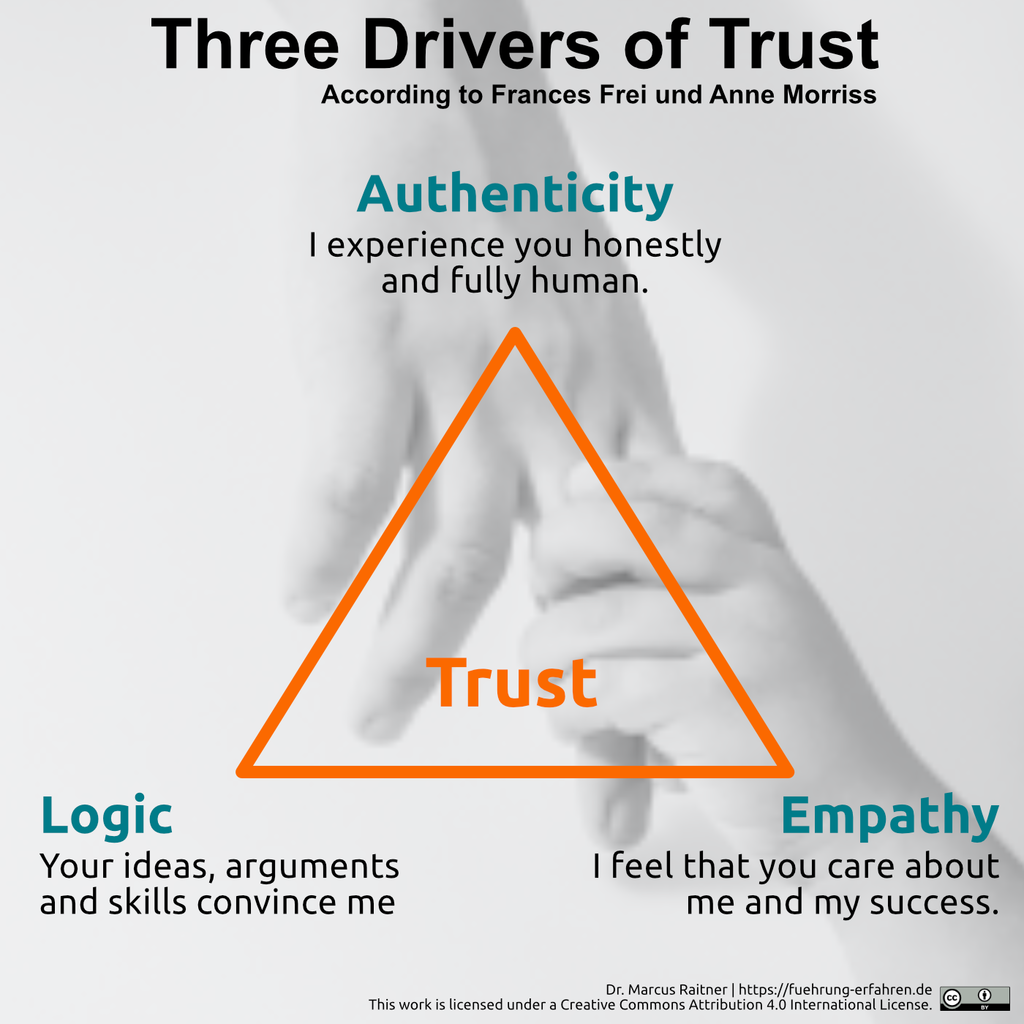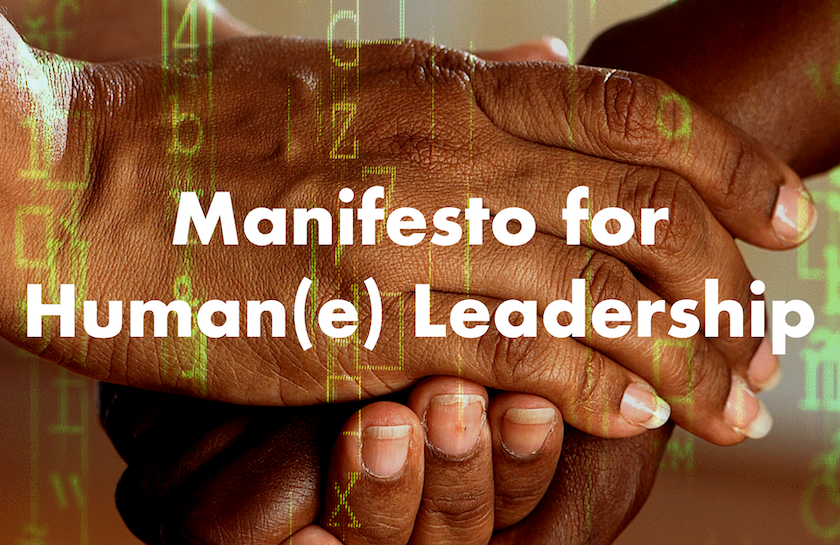Leadership builds on trust. Unless, of course, your name is Caligula, you’re a Roman emperor and you’ve deliberately chosen the motto “Oderint, dum metuant!” (in English: “Let them hate me as long as they fear me”). The resulting obedience may be satisfying for some sovereigns, but fear and pressure are certainly not conducive to the creative peak performance we need more than ever in knowledge work in our organizations at the beginning of the 21st century. Knowledge work presupposes voluntariness (cf. Peter F. Drucker, Management’s New Paradigm, 1998). However, we follow voluntarily and wholeheartedly only whom we trust.
Trust is also one of the most essential forms of capital a leader has. Building trust, however, often requires thinking about leadership from a new perspective. The traditional leadership narrative is all about you: your vision and strategy; your ability to make the tough calls and rally the troops; your talents, your charisma, your heroic moments of courage and instinct. But leadership really isn’t about you. It’s about empowering other people as a result of your presence, and about making sure that the impact of your leadership continues into your absence.
Frances Frei and Anne Morriss (2020). Everything Starts with Trust. Harvard Business Review.
We trust another person if, first, the ideas, arguments and competencies of the other person convince us (logic), if, second, we perceive that person as sincerely human (authenticity) and if, third, we feel that the other person is primarily concerned about us and the common cause (empathy). These are the three drivers for trust-based leadership, logic, authenticity and empathy, described by Frances Frei and Anne Morriss in their new book “Unleashed: The Unapologetic Leader’s Guide to Empowering Everyone Around You” (Amazon Affiliate-Link) and in their related article in the Harvard Business Review. Only when all three drivers appear to be strong will trust be established; as soon as one of them shows a deficit, trust will break down.

Logic
Leadership provides orientation. In this respect, leadership at this rational, logical level is about visions and ideas and about good arguments why it might be worthwhile to take the direction indicated. Of course, the attractiveness of the vision and the conclusiveness of the reasoning play a major role. Those who are not convinced of this or who have doubts about the abilities of the leader will only follow distrustfully.
As a general rule, a large proportion of problems in this area are not so much due to the facts and the pros and cons, but rather due to the way they are conveyed and communicated. The two authors recommend simply getting straight to the heart of the matter and only then providing the arguments for it in the further course instead of not making the actual point after a long deduction (and the accompanying discussion). Of course, this requires the ability to get to the heart of the matter crystal clear and to communicate it unequivocally, which is an art in itself.
Authenticity
Relationships of trust develop between people who sincerely meet each other in all their human vulnerability. If these people consciously or unconsciously only play roles, the degree of trust necessarily remains limited. A high degree of authenticity in the organization leads to the psychological safety that people need in order to be able to develop fully. Only when the members of a group feel safe enough to speak their minds openly and take risks will the whole become more than the sum of its parts. That is why psychological safety is by far the most important factor influencing the effectiveness of teams, as Google found out in their Project Aristotle. That’s what makes the difference between service by the book and real commitment.
So pay less attention to what you think people want to hear and more attention to what you need to say to them. Reveal your full humanity to the world, regardless of what your critics say. And while you’re at it, take exquisite care of people who are different from you, confident in the knowledge that their difference is the very thing that could unleash your potential and your organization’s.
Frances Frei and Anne Morriss (2020). Everything Starts with Trust. Harvard Business Review.
Empathy
This dimension is the greatest challenge for many managers. Greater even than authenticity, which also includes vulnerability as a human being, something that does not at all match the widespread heroic (self-)image of leadership. Especially in the context of hierarchical organizations, leadership is considered synonymous with position and power. Therefore, it is all too often about the ego, assertiveness and one’s own advancement. And people feel this. They sense that the manager does not care about them as people with their individual talents, needs and worries, but that in the end they are just pawns, bargaining chips, headcounts and resources.
Signaling a lack of empathy is a major barrier to empowerment leadership. If people think you care more about yourself than about others, they won’t trust you enough to lead them.
Frances Frei and Anne Morriss (2020). Everything Starts with Trust. Harvard Business Review.
Sometimes even small changes in behavior can significantly increase empathy. The two authors suggest, for example, to observe oneself in meetings. As soon as one’s own interest is satisfied and one believes to have understood it, the commitment decreases and the view moves to the smartphone or laptop and to the unanswered e‑mails. The associated signal is clear: I and my tasks are now more important to me than you, who are here with me in this meeting. Real empathy in this situation would mean taking responsibility for the other people in the room and their needs. And that begins with simply putting away the smartphone more often and devoting yourself fully to the people in the room.
Indeed, the last thing we’ll say on empathy is this: If you do nothing else to change your behavior, put away your phone more frequently. Put it truly away, out of sight and out of reach, not just flipped over for a few minutes at a time. You’ll be amazed at the change in the quality of your interactions and your ability to build trust.
Frances Frei and Anne Morriss (2020). Everything Starts with Trust. Harvard Business Review.
Frances Frei herself sums it all up much better in her inspiring TED Talk with many examples from her practical experience at companies like Uber:
And in this interview Frances Frei goes into even more detail about her findings and experiences:





